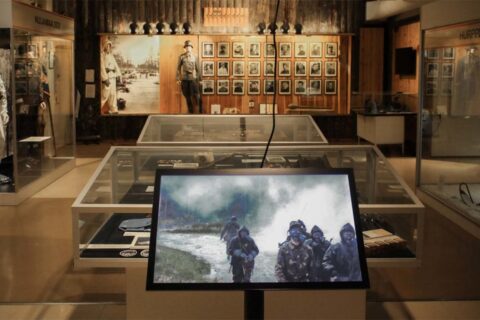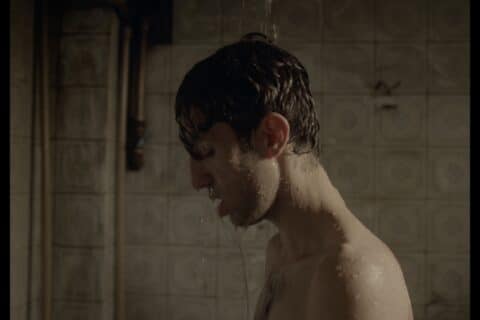Church of the Three Crosses (Vuoksenniska Church)
Alvar Aalto started working on the Vuoksenniska church plan in 1955 as a side project of the Imatra town plan. The constructions of the church were completed in 1958 and inaugurated on September 28, 1958. The Vuoksenniska Church is the most original of all Aalto’s church designs; the synthesis of his approach combines both practical and aesthetic needs in his architecture.
The church is characterised by a trinity theme which can be seen in several places. The division of the church hall into three smaller halls emmphasizes the Trinity in a wider, theological context. The 34-metre-high sculptural concrete campanile has a triple motif, its upper part is tripartite and widens upwards. With this form, the author has sought an architectural image that would be as distinct as possible from the factory chimneys that dominate the surroundings. The tripartite motif continues inside the church, in the form of vaults covering the three chancels. On the altar, this tripartite motif is centred around three modest white crosses whose shadows deliberately fall on the white wall just during the service.
The church has five entrances to allow uninterrupted access to each of the three sections. The altar can also be used as a blessing chapel, so there is a ceremonial exit out into the pine-shaded cemetery. The church building as a whole is of brick and iron concrete with a copper roof.
The only real work of art in the church is a stained glass window, a stylised crown of thorns, designed by Alvar Aalto and made by S. Wuorio.





